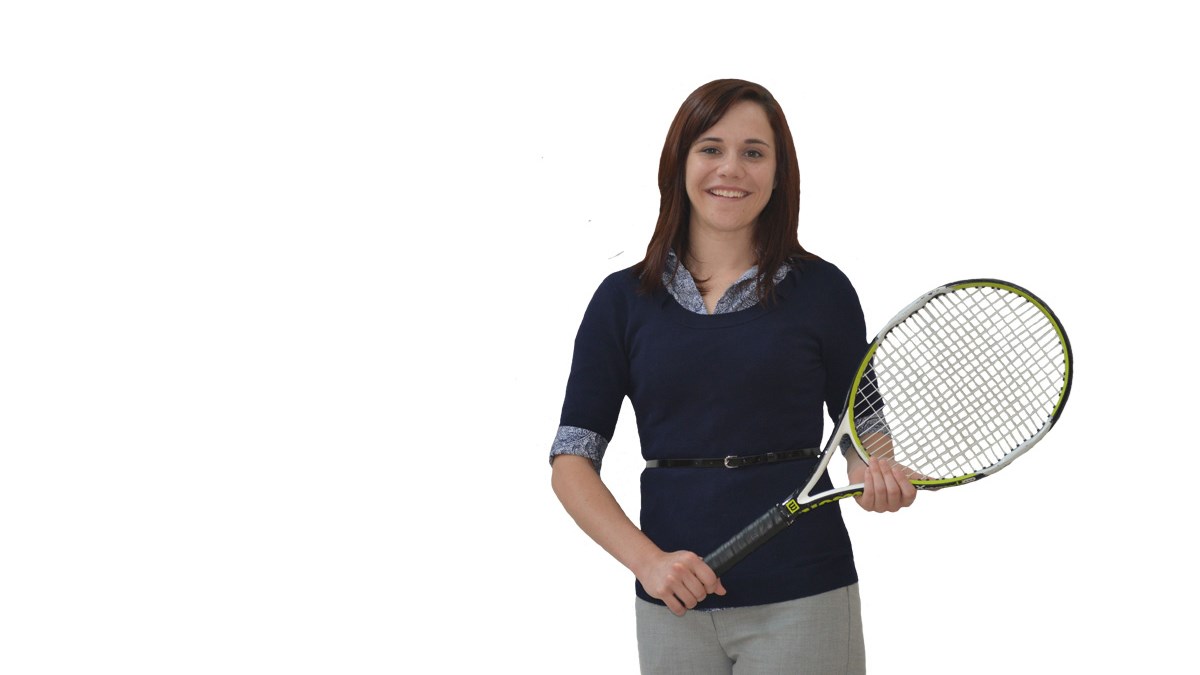Sarah Bowen

“During my pharmacy rotations I found myself chasing down the next procedure and staring at MRIs and CT scans. I developed a passion for the diagnostic end of medicine.”
1. What made you want to get your MD degree at WVU?
I was familiar with the University from my time in pharmacy school. I know the school stresses interdisciplinary learning and teamwork, which I value as an aspiring physician. The mentors in pharmacy school were amazing here, and I knew I would not have a problem finding a mentor at WVU who would help me to reach my goals. Football seasons do not hurt either, and I really enjoy attending the games.
2. What made the program so appealing?
At my interview I immediately felt comfortable. The Student Services staff stressed they would do whatever it takes to help us succeed in the curriculum. I felt that I would not be alone throughout this journey. I also knew some upperclassmen and they had nothing but positive things to say about the program. I knew it was the right program for me.
3. What is your favorite part of the program?
I like the physician shadowing opportunities, because working with patients keeps the final goal in sight. When you are swamped with the intense coursework, it is easy to forget why you wanted to become a physician. When you are in the clinic and see that you are helping patients it makes the process with it.
4. What made you want to become a doctor?
During my pharmacy rotations I found myself chasing down the next procedure and staring at MRIs and CT scans. I developed a passion for the diagnostic end of medicine. I wanted to learn more about the diseases, how to diagnose them, and be involved in hands-on patient care.
5. How do you balance your home, school, and social life?
We are all still trying to figure that out. Each day you learn more about yourself and better understand the breaks you need to have to be successful without being overwhelmed. I try to take more time to exercise and be outdoors. You just have to allow yourself time to do the things you enjoy.
6. You will be completing your last two years (the clinical years) at the Charleston Campus. How will that experience be unique from the Morgantown and the Eastern Campuses?
I am from the Charleston area and work as a pharmacist at one of the CAMC hospitals. I enjoy the environment and the physicians, and I really love the patient population. It will be great to give back to the community I grew up in. Also, there are not as many residents and fellows there, so I think I will get more one-on-one training with the physicians which I value.
7. What are your goals after graduating?
Right now I am interested in oncology and would like to pursue a career in that field of medicine. I am not sure if I want to work with pediatric or adult patients. Ultimately, I want to be a capable and competent physician.
8. What is your favorite thing to do outside of school?
I took up running as a hobby and I am trying to get more into long distance running. I love spending time with my family and friends and really enjoy traveling.
9. Do you have any advice for anyone thinking about medical school?
If it is something you want to do, don't let anyone talk you out of it because it is difficult path. Try to find community service and shadowing opportunities that expose you to the healthcare field so you know if it is really what you want to do. Make sure you are good at time management because that is one of the most difficult things to figure out in medical school.
10. You attended pharmacy school before medical school. Has that experience helped you so far?
Absolutely. Having experience in graduate school has helped me to better manage my time and not be as overwhelmed by the rigorous curriculum. Also, having a lot of health care exposure has helped me to feel more at ease when I am at the clinic. I understand how to work with the other members of the medical team and really enjoy doing so because that is the best way to optimize care.
- Interviewed summer of 2014 (at the beginning of the MS2 curriculum)